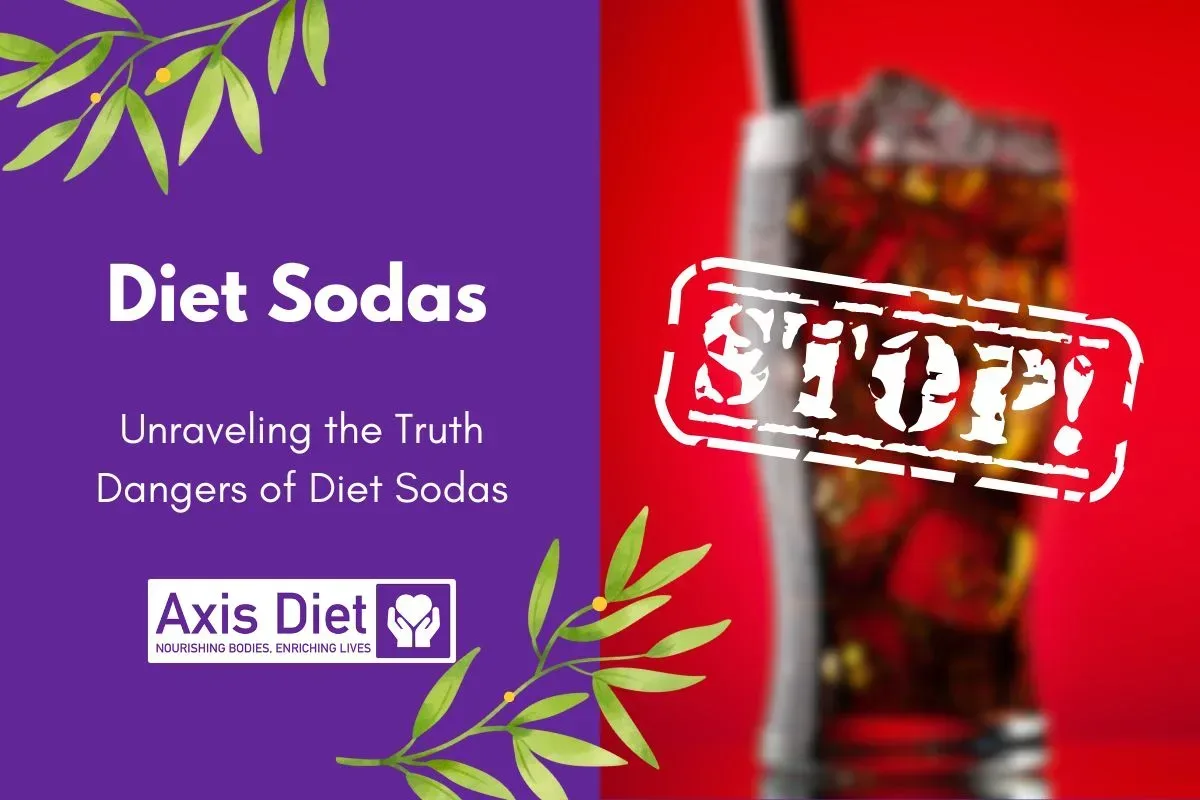In today’s health-conscious world, many people are opting for low-calorie or “diet” alternatives to their favorite foods and beverages. One such option is diet soda, which has gained popularity as an apparent healthier alternative to regular carbonated drinks. However, recent studies have raised concerns about the potential negative impact of diet soda on our health. Join us as we delve into the hidden dangers of diet soda and explore why it may not be the best choice for your well-being.
What is Diet Soda?
Diet soda, also known as light or sugar-free soda, is a carbonated beverage designed to mimic the taste of regular soda while containing little to no sugar or calories. It is sweetened with artificial sweeteners like aspartame, saccharin, or sucralose to provide the desired flavor without the added sugars found in traditional soda.
The concept behind diet soda is to offer a low-calorie or zero-calorie alternative to satisfy cravings for a fizzy, sweet beverage. It is often marketed as a healthier option for those looking to manage their weight or reduce their sugar intake.
However, it is essential to understand that diet soda is not a nutritionally valuable beverage. Its main purpose is to provide a sugar-free alternative without the caloric content associated with regular soda. Despite its appealing attributes, ongoing research highlights potential harmful effects on various aspects of our health.
Does Drinking Diet Soda Have and Side Effects?
With the rising popularity of diet soda as a seemingly healthier alternative to regular soda, many individuals have turned to these artificially sweetened beverages. However, the question remains: Does drinking diet soda come with its own set of side effects? In this section, we will explore the potential risks and adverse effects associated with consuming diet soda. Join us as we uncover the truth and shed light on whether this widely consumed beverage has hidden drawbacks.
1. Artificial Sweeteners and Weight Gain
One of the primary reasons people choose diet soda is to fulfill their cravings for something sweet while avoiding the high-calorie content of regular soda. However, diet soda replaces sugar with artificial sweeteners such as aspartame, saccharin, or sucralose. Instead of helping with weight management, various studies suggest that artificial sweeteners may actually contribute to weight gain by disrupting the body’s natural mechanisms for calorie regulation. This contradictory effect could be due to artificial sweeteners tricking our bodies into craving more sweet foods, leading to overeating and potential weight gain.
2. Adverse Effects on Metabolic Health
While diet soda may appear to be a healthier alternative to regular soda, it is essential to understand its potential adverse effects on metabolic health. Multiple studies have linked diet soda consumption to an increased risk of metabolic syndrome, a cluster of conditions including abdominal obesity, high blood pressure, insulin resistance, and elevated cholesterol levels. These factors significantly raise the risk of developing cardiovascular disease and type 2 diabetes.
Researchers believe that the artificial sweeteners in diet soda may disrupt the body’s ability to regulate blood sugar levels, leading to fluctuations in insulin release. This disruption can contribute to insulin resistance over time, a key driver of metabolic syndrome and type 2 diabetes.
3. Negative Impact on Gut Health and Microbiome
Emerging research suggests that diet soda may also negatively affect our gut health and the delicate balance of our gut microbiome. The artificial sweeteners used in these drinks are not digestible, which means they pass through the digestive system mostly intact. This alteration in the composition of gut bacteria has been associated with various health issues, including increased inflammation, impaired digestion, and potential weight gain.
4. Potential for Increased Appetite and Cravings
Many individuals turn to diet soda as a means of curbing their appetite and satisfying their sweet tooth without consuming excess calories. Unfortunately, studies have shown that artificially sweetened beverages may have the opposite effect. The intense sweetness of diet soda can actually increase cravings for sugary foods and lead to overeating. This phenomenon is believed to be due to the impact of artificial sweeteners on the reward centers in our brain, disrupting the natural balance of food intake and satiety cues.
5. Dental Health Concerns
Diet soda is highly acidic, which can erode tooth enamel over time. The combination of high acidity and frequent consumption can increase the risk of tooth decay, cavities, and tooth sensitivity. Additionally, the caramel coloring found in some diet sodas has been associated with staining teeth.
6. Increased Risk of Kidney Disease
One study published in the Clinical Journal of the American Society of Nephrology found that consuming diet soda on a daily basis was associated with a significant increase in the risk of kidney disease. The researchers suggest that the artificial sweeteners used in diet soda may contribute to kidney damage by reducing kidney function and increasing the risk of kidney disease development.
7. Kidney Stone Formation
Another potential concern linked to diet soda consumption is an increased risk of kidney stone formation. This is due to the high acid content of diet soda, which can lead to the accumulation of calcium-based stones in the kidneys. The excess consumption of phosphoric acid, commonly found in diet sodas, further contributes to this risk, as it can disrupt the balance of calcium in the body.
8. Linked to Childhood Obesity
Parents may opt for diet soda as a drink choice for their children, believing it to be a healthier option due to its low or zero-calorie content. However, studies have shown that consuming artificially sweetened beverages like diet soda can lead to unintended consequences. By consuming artificially sweetened drinks, children may develop a preference for intensely sweet flavors, contributing to an overall increased desire for sugary foods and beverages. This may promote unhealthy eating habits and potentially result in weight gain.
In a study published in the journal Pediatric Obesity, researchers found that children who consumed diet soda had higher calorie intakes from both food and beverages compared to children who did not consume any soda. The artificial sweeteners used in diet soda may disrupt the body’s natural mechanisms for calorie regulation, leading to an increased appetite and potential overeating.
Conclusion
Although diet soda may seem like a better choice than regular soda due to its low or zero-calorie content, it is important to consider the potential risks it poses to our overall health and well-being. From the use of artificial sweeteners to the negative effects on metabolic health, gut microbiome, and dental health, the hidden dangers of diet soda should not be overlooked.
When choosing beverages, it is always advisable to opt for healthier alternatives such as water, herbal tea, or homemade flavored water infused with fruits and herbs. These options will not only quench your thirst but also provide essential hydration and vital nutrients without any potential risks.
At AxisDiet, we believe that making informed choices about our nutrition is crucial for our overall health. It is essential to prioritize consuming whole, unprocessed foods and beverages that nourish our bodies rather than relying on artificial substitutes. Remember, moderation is key, and a well-balanced diet is the foundation of a healthy lifestyle.






[…] Drinks: Soda, energy drinks, and other sweetened beverages can cause rapid blood sugar spikes and should be […]
[…] Replace soft drinks and packaged juices with healthier alternatives like infused water, fresh lime soda, buttermilk, or green tea. […]